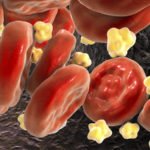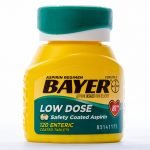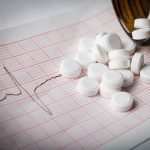One of the great advantages of HMOs, at least according to advocates, is that they typically offer patient education, a key preventative health measure. But recent evidence indicates that merely providing health information and medical advice doesn’t guarantee that patients will heed it.
A new study just published in the journal Circulation: Cardiovascular Quality and Outcomes, followed 3522 people with an average age of 67, who had a history of heart problems. Half of the subjects received intensive counseling about how to recognize heart attack symptoms and when to seek help. The study found that the patients who received the counseling were not one bit more likely to seek help at the appropriate time than patients who had received no such coaching. During the duration of the study, 565 of the subjects made use of emergency medical services due to cardiovascular symptoms.
The subjects who had received counseling waited 2.2 hours between experiencing symptoms and getting to the hospital, the un-counseled group waited 2.25 hours. Given the fact that patients need to receive treatment within 90 minutes of the onset of symptoms in order to prevent the worst outcomes, and given that the counseled group had been warned about the 90-minute window, the education clearly failed to make a dent. Also, the patients who hadn’t received counseling actually made better use of the emergency medical system, employing it 66.9 percent of the time, versus only 63.6 percent for the “educated” patients. Again, this points to the failure of the counseling, which focused on the urgency of getting to the hospital immediately and using the emergency medical system to expedite delivery of services.
In the case of cardiac problems, not heeding medical advice can mean big trouble — trouble, of course, best avoided by implementing natural health practices that prevent heart disease in the first place. But this blog entry isn’t about people following the advice of natural health practitioners; it’s about people following the advice of their doctors. And, as it turns out, advice issued after medical problems have developed often comes too late and patients don’t listen anyway, as other studies attest. It seems that the impulse to ignore what the doctor says may come with the human psyche. Patients consult doctors, but they don’t always like what they’re told and in the end, do what they please.
One study found, for example, that two-thirds of patients with gum disease ignore advice given by their dentist about how to brush their teeth. And if you think the results of such noncompliance would not equate to the dire consequences of failing to act in the case of cardiac warning signs, you would be wrong. Serious medical conditions associated with periodontal disease include, rheumatoid arthritis, diabetes, and heart disease. As it was, the dentists in the study advised patients to brush for two minutes twice a day. The patients used special toothbrushes that recorded brush time, and the vast majority fell short, though half believed that they had complied.
One of the lead researchers, Professor Peter Heasman of Newcastle University, said: “I think that many dentists and dental hygienists are fully aware that their patients do not always follow their professional advice. Nevertheless, we were surprised to find so many of our patients who were unable to follow instructions accurately, even in the short term.”
Dr. Heasman’s comment allows that patients might not understand that non-compliance can really lead to loss of teeth [and death], rather than assuming deliberate non-compliance. But deliberate non-compliance seems to be the reason that college students ignore advice to wash hands regularly as a flu-busting measure, a recent study found. The schools involved in the study placed sanitizer gel dispensers at the entrances to public buildings, with signs urging students to make use of the gel, but only 17 percent of students did so. At New York University, students received flyers and emails urging them to wash hands and stay out of classes if they became ill, but again, most simply paid no attention.
NYU freshman Daniel Lee explains, “I think most people just toss the fliers out without giving them a second thought.”
Perhaps of greater concern is the fact that young people also ignore advice about taking pharmaceuticals, according to a 2001 study by the Royal Pharmaceutical Society in Great Britain. The study followed 200 people aged 18-39, and found that only a small minority followed the instructions they were given with their prescription medicine. One-third ignored advice to avoid alcohol when on their pills, many drove when on medication that could make them drowsy, and 50 percent stopped taking their medications before completing the recommended course.
What’s going on here? Are people unable to pay attention long enough to grasp the advice? Are they simply cantankerous, rebellious, pig-headed? Or is ignoring medical advice sometimes actually called for?
In fact, while doctors fret and moan about patients who fail to complete the course of their medications, given the side effects of so many medications, stopping may be “just what the doctor [should have] ordered.” For instance, the recommended course for antibiotics keeps shrinking. Whereas a 10-day course of treatment once was standard for upper respiratory infections, doctors in Europe now typically prescribe only five days. Recent research indicates that three days of treatment for non-acute pneumonia works as well as five days. So patients who use their own intuition and stop after a few days may simply be in advance of the medical establishment. When patients stop taking medications that make them feel awful, they may be making the wise choice — or they be helping to breed resistant strains of viruses and bacteria that threaten all of humanity. The problem is that they don’t necessarily know what natural health alternatives are available to them (no thanks to the medical professionals), and doing nothing may be dangerous.
There’s also the fact that a very recent study found that the percentage of patients leaving the hospital against medical advice has increased 40 percent in recent years. Still, only 1.2 percent of all hospital patients self-discharge, and many of those leave for financial reasons; but patients who leave because they fear getting worse in the hospital are on to something real, given the fact that hospital-induced infections are legion, and medical errors account for 98,000 wrongful deaths a year in the US alone.
In short, it often makes sense to heed advice intended to prevent problems in the first place. If you ignore heart-attack symptoms, you can end up dead within a few hours. If you fail to brush your teeth thoroughly, you can end up toothless, diabetic, or dead from a heart attack. If you drink while on prescription meds, you’re asking for trouble. But sometimes it makes sense to ignore advice that would hurl you into the pill-popping, hospital frequenting medical mainstream, as long as you know what natural health alternatives might work more safely and effectively.
:hc











